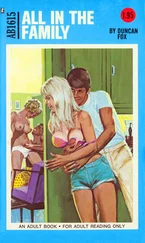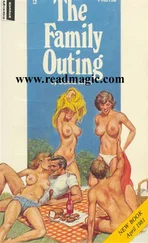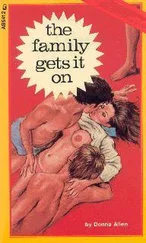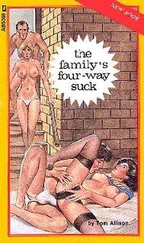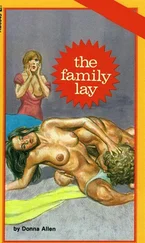“That’s all I need to hear,” says Olwen. “Your panic at the prospect of me wanting him back is extremely reassuring. Tell you what, though—I’d love to come and visit him in his new home.”
You’ve got to be kidding me.
“How are you fixed for tomorrow?”
“Tomorrow? That’s . . . soon.”
“I must admit, now that you’ve mentioned this grand house with eighteen acres, I’m itching to get a look at it. It’ll be like visiting a National Trust mansion. Tomorrow’s my only free day for the foreseeable future, but do say if it’s inconvenient. It can wait a few weeks.”
“No, tomorrow’s fine.”
Ellen does a pantomime “What now?” face.
Knowing that Olwen wants to come, I’m not inclined to delay it. There’s something not right about all this. How many dog breeders are so intrusive? How many would be willing to travel from London to Devon to visit a puppy they last saw less than a week ago?
Is it a coincidence that I mentioned the names Donbavand and Ingrey, and almost immediately Olwen decided she wants to travel for hours to see Figgy?
Perhaps, in spite of her apology, she’s still anxious about him and wants to give his new home the once-over. Or else she’s the ruthless and deranged Allisande Ingrey who grew up in Speedwell House, and that’s why she wants to come.
And you’re letting her?
It seems I am.
Something’s on its way. Something’s going to happen, and I won’t know what it is until it has. I have to advance toward it, or draw it toward me.
“What’s your email?” I ask Olwen. “I’ll send you my full address.”
As soon as I’m off the phone, Ellen says, “Dad says George wasn’t really expelled.” I expected her to ask about the conversation she’s just half heard. I should have realized George would trump everything.
“That’s right.”
“I’m going to tell him next time he comes,” Ellen says defiantly. “That he was only pretend-expelled.”
“You should,” I say. “I think he deserves to know. Do you think there’ll be a next time? Sounds like it’s pretty difficult for him to get out of the house.”
“He’ll come whenever his mum’s somewhere where she can’t call and ask to speak to him.”
“You knew he was going to come today, didn’t you? That’s why you asked to stay home from school.”
Ellen nods.
“How did you know?”
“On Fleur’s last day, he gave her a note to deliver to me at school.”
“El . . . if you don’t go back to Beaconwood, you’ll have to go to another school pretty soon. You can’t sit around the house every day on the off-chance that George might turn up.”
“There are no off-chances involved, Mum. Me and George discussed it—yes, I know it’s George and I , I don’t care. Fleur’s not at school anymore, so she won’t be able to deliver messages. So we’ve agreed that whenever George is planning to come around the next day, he’ll send a signal. Every evening at quarter to nine on the dot, I’ll stand by the kitchen window. That’s his house there, see—the one painted kind of tangerine color, with the black-painted wood? George’s room is the one on the far left. His bedroom will be dark by quarter to nine—he has to turn his light off by eight thirty, can you believe that? He’s fourteen! Anyway, if he turns his bedside lamp on and off three times, that means he’s coming the next day. I’ll reply by turning the kitchen light on and off three times to let him know it’s okay to come.”
I know what I ought to say: that if the next day is a school day, it won’t be okay because Ellen can’t miss school, ever, simply to see a friend.
Yes, she can. If it’s a friend she loves, who loves her, whom she’d never see again otherwise.
I should say that if George isn’t allowed by his parents to visit Ellen, then, however much I might sympathize with her predicament and however tyrannical his parents are, I won’t have him in the house.
Fuck that. Fuck Professor Anne Donbavand and her vicious paranoia.
“All right,” I say. “Then that’s what you’ll do.”
“Really?” Ellen’s eyes nearly pop out of her head. She was expecting resistance.
“Really. Let’s hope you’ll be able to squeeze the occasional day of school in between George’s visits, eh?”
She throws her arms around me and squeezes me. “You’re so the best mum ever. It might only be once every six months. His mum’s out of the house quite often, but usually she calls every hour or so and she’d be suspicious if she couldn’t speak to him. This time he knew she’d be on a plane for seven hours flying back from America, so there was no chance of her calling. Mum?”
“Mm?”
“What did you think of George?”
This is an answer I have to get right. When I lived in London and worked too hard, I was a less-than-ideal mother in many ways: often stressed and bad-tempered, never available to make Halloween costumes, or even to order them from Amazon. Sometimes Ellen used to creep up to me with a tentative “Mu-um . . . ?” and I’d snap, “No! Not now! Don’t ask me to do anything, don’t tell me you need something—I can’t! If you can’t sort it out yourself, the answer’s no.” I feared that to be assigned one more task might have broken me.
Terrible.
I compensated by being wildly enthusiastic about all the things I could see Ellen loved, by making sure never to steer away from her own wishes and needs in order to fulfill mine—something I saw so many of the always-armed-with-top-notch-Halloween-costumes mothers doing.
Top of Ellen’s list of loves at the moment is George Donbavand.
“I think he seems amazing,” I say. “You’re very lucky to have him as a best friend.”
“You know when you asked about the curtains being closed—did you think we were kissing and stuff like that? Sex-type things?”
“No.” I give her a sharp look. “You’re fourteen: too young for all that.”
“Exactly,” Ellen agrees. Thank God. If someone had said that to me when I was fourteen, I’d have laughed till I cried.
“No, that didn’t even cross my mind,” I lie. “It struck me as odd to close someone else’s curtains, that’s all. And I knew you wouldn’t have done it.”
“Mum, can you keep a secret? I mean even from Dad, because he wouldn’t understand.”
“Are you sure? Dad’s quite enlightened.”
“Not enough for this,” says Ellen gravely. “You might not be either, but . . . I just really, really need you to be!”
All right, get ready, Merrison. Whatever she’s about to tell you, you mustn’t blow this. You support her, whatever she wants. If she wants to have George’s name tattooed on her ankle . . .
Oh God, please let it not be that. Anything but that. She might not love him this time next year.
“When we’re older—I mean much older, once we’ve been to university and everything—George and I are going to get married. He proposed to me and I said yes. We’re engaged.”
I give her a hug. “Congratulations,” I say, and I mean it. University first: hooray. My child is sensible. Sensible enough, anyway. No tattoos, no fundamentalist religion, no body piercing, no blowing up laboratories that experiment on animals because George loves rabbits . . .
“Wait,” says Ellen, extracting herself from my embrace. “It’s not going to be a regular marriage.”
“What do you mean?”
“George is gay. So you see, we’ll never have sex. Oh, don’t do your ‘Say what?’ face.”
“Sorry, I didn’t mean to . . . George is gay? But . . . then won’t he want a husband rather than a wife?”
Читать дальше


